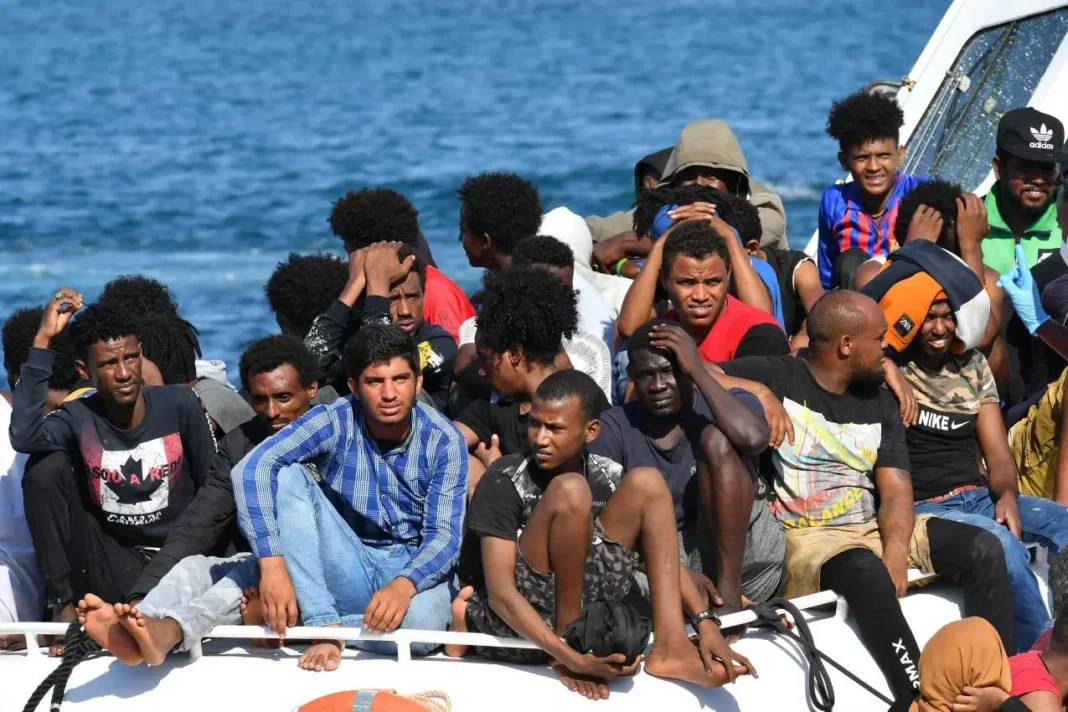By Álvaro Peñas
“Frontex”, the European Border and Coast Guard agency tasked with protecting Europe’s borders, is once again embroiled in a political scandal. It’s not the first time. In January 2021, Frontex announced its withdrawal from Hungary because of the Orbán government’s immigration policy. This retreat was preceded by a campaign by the Hungarian branch of the non-governmental organization (NGO) Helsinki Committee, which, unsurprisingly, is funded by George Soros’ Open Society. In September, the Warsaw-based agency Frontex asked the Polish government for access to the border with Belarus. The Poles agreed and in October, Frontex Director Fabrice Leggeri visited the border together with Polish Deputy Interior Minister Bartosz Grodecki. Leggeri said at the time that he was impressed by Poland’s efforts to protect the border, which earned him harsh criticism from NGOs for “letting migrants die on the Belarusian border”.
“Violation of fundamental rights of migrants”
A new scandal erupted last week and Fabrice Leggeri resigned (in connection with the forthcoming publication of the report by the European anti-fraud agency OLAF on the management of Frontex). The report, in line with left-wing parties and NGOs, denounced “hot repatriations” and violations of migrants’ “fundamental rights”. The confrontation between Leggeri (who took office in 2015 and was re-elected in June 2019) and the NGOs goes back a long way: Frontex faced a lawsuit from pro-immigrant NGOs demanding access to the agency’s operational information. Finally, in November 2019, the European Court of Justice ruled in favor of Frontex, justifying the refusal to
What are “hot recycles” ?
It is therefore not surprising that the NGO Open Arms called Leggeri’s resignation “good news”, or that Médecins Sans Frontières accused him of conducting “hot repatriations”. The fact is, however, that the so-called “hot repatriations” are not legally defined objectively. A problem that, according to Leggeri, lies in a contradiction: namely the principle of “non-refoulement” enshrined (in the Geneva Convention) and (defined in the Schengen Borders Code) border surveillance and prevention of illegal entry.
However, the lack of a clear legal definition has not prevented those countries that have dared to protect their borders effectively, notably Poland and Hungary, from being condemned in litany in the EU, repeated ad nauseam by most of the media and is now linked to possible economic sanctions against these countries.
Frontex mandate was “creepingly changed”
Leggeri posted his letter of resignation on the Internet and explained: He had the impression that Frontex’s mandate had been gradually but actually changed. This means that the task of border protection was replaced by the task of monitoring compliance with the basic rights of asylum seekers in the administration of border protection. The European Commission reacted quickly to this accusation, pointing out that the agency’s mandate has not changed and that its role remains to support member states in defending the EU’s external borders.
The Frontex Regulation is clear: “…the aim is to efficiently manage the crossing of external borders and to deal with migratory challenges and potential future threats at these borders, thereby combating serious crime with a cross-border dimension and ensuring a… to contribute to a high level of internal security in the Union…”. The security of the EU member states is the core task of the agency. Of course, this does not mean that fundamental rights should not be respected. But the mission to defend and protect the borders of European nations is the reason for the existence of “Frontex”.
Should Soros NGOs “monitor” the borders?
The war in Ukraine has unleashed an unprecedented humanitarian crisis, a crisis that is being tackled by the very countries that have suffered most from media lynching and Commission harassment, namely Poland and Hungary. But it seems nobody in Brussels likes to see or hear about it. The German government hopes that Leggeri’s replacement will be “an opportunity for a fresh start at the agency”. Given the growing power of NGOs in all areas of European politics, this fresh start could see NGOs ‘surveillance’ our borders.
This article first appeared on EL CORREO DE ESPAÑA , our partner in EUROPEAN MEDIA COOPERATION.

